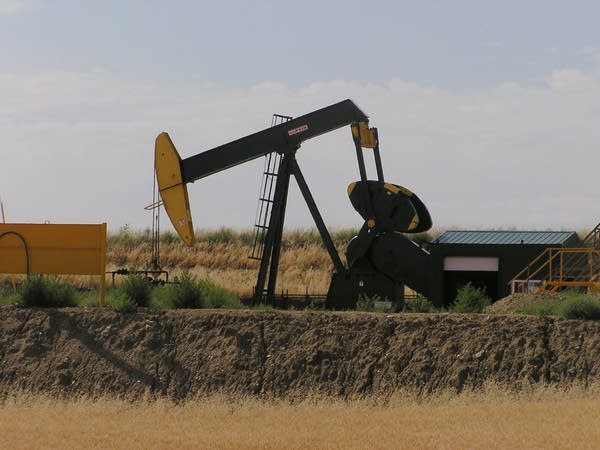$1 billion is bad enough -- deficit could get worse
Go Deeper.
Create an account or log in to save stories.
Like this?
Thanks for liking this story! We have added it to a list of your favorite stories.

The new budget forecast predicts a state budget deficit of $935 million. It assumes that tax collections will be $500 million less than earlier projections.
It also highlights how significantly estimates can change, and how difficult it is to predict what will happen with the economy.
State economist Tom Stinson said the new forecast is essentially based on a best-guess scenario of circumstances, and should be received with a great deal of caution and uncertainty.
[image]
Turn Up Your Support
MPR News helps you turn down the noise and build shared understanding. Turn up your support for this public resource and keep trusted journalism accessible to all.
"It's troubling because the uncertainty really isn't going to be resolved fairly quickly," Stinson said.
The budget forecast assumes that oil prices will drop considerably -- from around $100 per barrel now to about $75 during the summer. Some economists say that's a risky assumption.
Consultants hired by the state who put together the forecast assume the economy will weather a "short, mild" recession in the first half of this year. They say that recession will drive down sales tax revenue and tax collections from individuals, and more importantly, from corporations.
All told, they're predicting a nearly 4 percent larger drop in revenue than they did last spring.
Their forecast assumes the national economic stimulus package will lift the economy out of recession in the second half of this year.
"It does make sense," said economist Louis Johnston at the College of St. Benedict and St. John's University. "The question that all of us are asking and none of us have an answer to is --is it really going to be as shallow as they're forecasting?"
"I've seen numbers that show even deeper recession for the first half of the year," Johnston added, "and even less kick from the stimulus package in the second half, and so it's possible that it could be worse even than what they're forecasting."
One big problem Johnston says he sees with the forecast is its assumption that oil prices will drop considerably -- from around $100 per barrel now to about $75 during the summer.
State economist Tom Stinson said, he, too, has concerns about that expectation. He said it's based on the notion that if the economy is indeed in recession, businesses and individuals won't be using as much energy, and the reduced demand will lower prices.
Johnston said that's a risky assumption.
"How big is say, China's demand going to grow over the course of this year, or is the European economy going to slow down like the U.S.?" Johnston asked. "If it doesn't, then it's perfectly realistic to expect oil not to be $75, but to be more like $90 or $100 like it is now. And that would probably lead to slower growth or a bigger contraction than we're forecasting."
In fact, state economist Stinson said if oil prices at are at the $100 per barrel level next summer, high energy costs could push the economy back into recession.
Minneapolis Federal Reserve Bank regional Economist Toby Madden said the underpinnings of the state forecast are more pessimistic than what the Fed is anticipating. he said the Fed expects sluggish growth, not recession.
"When we survey manufacturers, when we survey ag lenders to see how their farm customers are doing, they're saying things are going pretty good," Madden said. "They're expecting more orders and higher profits. Overall, the consensus from business as well is that their own business is going to increase in 2008. So you're getting some mixed results here."
Like Stinson, Madden cautioned that predicting what's going to happen with the economy is a tough call right now. While the numbers may seem important only to state government insiders, Louis Johnston said individuals could do themselves good by taking heed of the state's pessimistic outlook.
He said now is a good time not just for state government, but for families, to plan for stormy economic times.
Dear reader,
Political debates with family or friends can get heated. But what if there was a way to handle them better?
You can learn how to have civil political conversations with our new e-book!
Download our free e-book, Talking Sense: Have Hard Political Conversations, Better, and learn how to talk without the tension.





